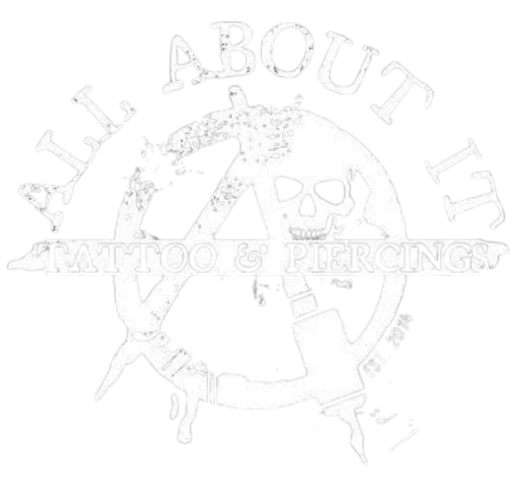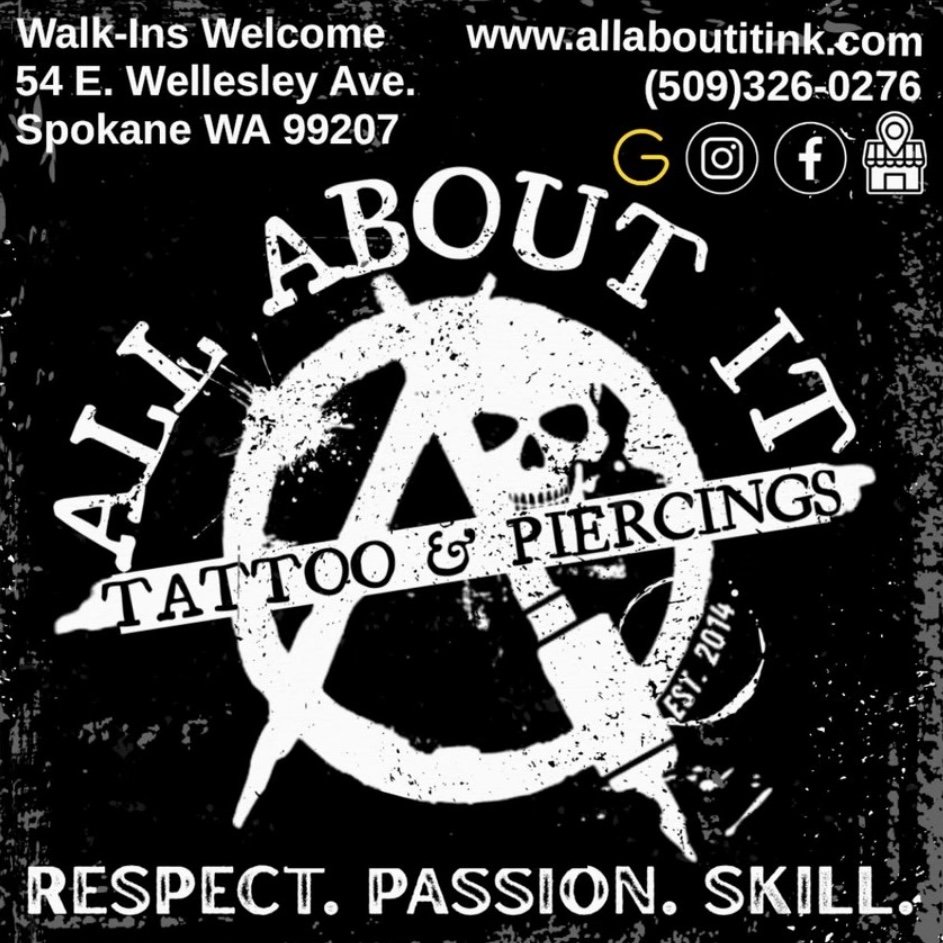Spokane Tribal Tattoos
Cultural Body Art at All About It Ink
At All About It Ink in Spokane, we celebrate tribal heritage through body art inspired by Polynesian, Maori, and Native American traditions.
Our artists master bold black lines, geometric patterns, and symbolic motifs that represent strength, protection, and identity.
Located steps from Riverfront Park, our studio combines traditional hand techniques with modern sterile protocols and premium inks to deliver custom tribal tattoos that honor cultural significance and personal stories.
Why Choose All About It Ink for Spokane Tribal Tattoos?
- • Deep knowledge of Polynesian and Maori linework for authentic designs
- • Custom stencil creation reflecting your personal tribal narrative
- • Precise geometric patterns and negative-space techniques
- • Hospital-grade autoclave sterilization and single-use needles
Our Tribal Tattoo Process
- Free Consultation to discuss your tribal inspiration and placement
- Custom Stencil Design based on cultural motifs and personal symbols
- Bold Outlining using thick black lines for lasting contrast
- Detail & Shading to enhance patterns and depth
- Negative Space Work for striking geometric balance
- Aftercare Guidance – see our Spokane Tattoo Aftercare Guide for best results

